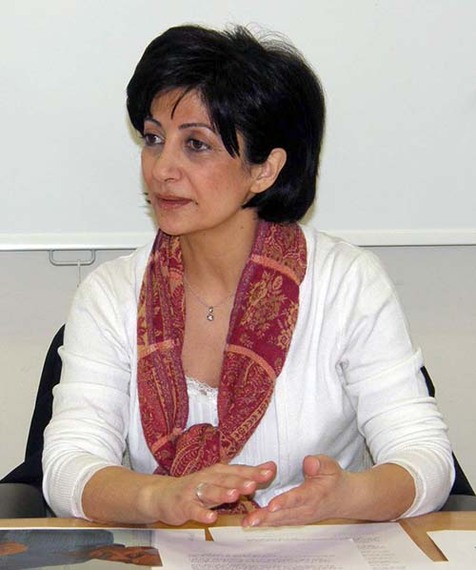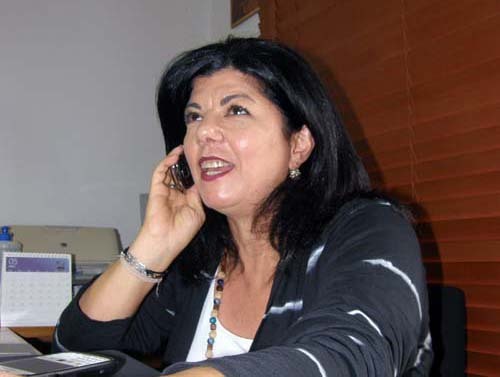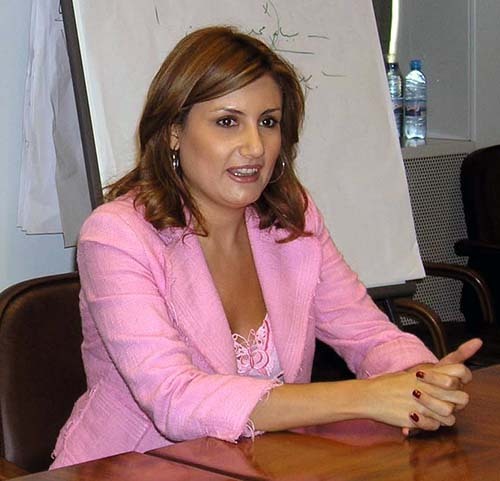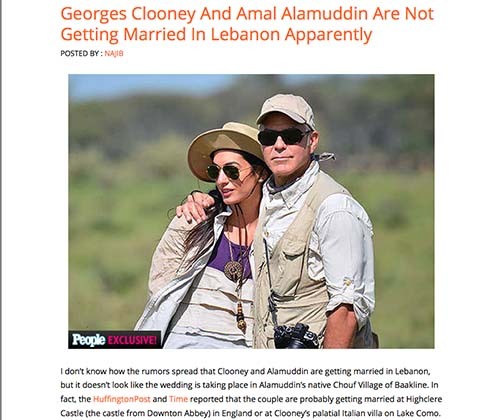News of a mini civil war in Lebanon between the Lebanese army and fighters thought to belong to the Islamic State (formerly ISIS) triggered a wave of rumors this week that were blamed in part on traditional media.
The troubling clashes along the eastern border are a spillover of the three-plus years of neighboring Syria's own war and have sent chills down the Lebanese people's spines.
Media consultant Dalal Saoud belives journalists today are handling rumors in a much worse fashion than a decade or two ago, with competing websites republishing unverified reports and social media propagating rumors and unfounded news.
The former United Press International Middle East bureau chief covered the tail end of Lebanon's 1975-1990 Civil War.
"Rumors at that time were mostly related to the kidnapping of Western hostages, with shadowy groups claiming responsibility and setting their conditions to release them," she said.
Such rumors focused mainly on the health conditions of some hostages and the death of others, which were hard to confirm but also hard to ignore, she added.
Post-civil war, rumors were of a more political, security, business or even personal nature.
She cited unfounded stories about the dropping value of the Lebanese currency that forced a cabinet change as an example.
Imane Chamas never realized her dream of becoming a pharmacist in the run-up to, and at the beginning of, the Lebanese Civil War.
Rumors of clashes between Lebanese armed forces and Palestinian guerrillas then based in Lebanon, morphing into real firefights and eventually a full-fledged conflagration made Chamas shift gears and abandon her pharmacy studies to take up the call of journalism.
When Beirut split into predominantly Muslim and Christian sectors, Chamas was a junior reporter at Assafir newspaper while still at the university. She later became one of the paper's veterans.
"Throughout my war coverage experience, the most dangerous and widespread rumors were those that exaggerated the numbers of injured, dead and kidnapped," she said.
In the post-Civil War period, Chamas, a seasoned journalist, media instructor and trainer, covered what was then termed the "street wars."
"What scared me most were rumors of booby-trapped cars and I tried as much as possible to avoid areas that could be targeted," she recalled.
For Octavia Nasr, former Arab affairs editor at CNN and one-time reporter at LBC TV, rumors were the norm during the civil war and journalists could never believe anything anyone told them.
"Every event had several versions to satisfy the various warring factions. With time, many rumors became facts to so many," she said. "So much so, that to this day there is no agreement on a unified history book for that crucial period in Lebanon's bloody past."
She recalled an incident when a rumor that the Syrian Army, which was initially deployed in Lebanon to keep warring factions apart, advanced substantially and grabbed key Lebanese army posts after fierce battles along the Souq el-Gharb mountain front east of Beirut.
"When we arrived on the scene, it was obvious that the Lebanese army had maintained their positions although signs of the fierce battles were (visible) in casualties and damages," Nasr said. "These are the kinds of facts you can never confirm unless you're actually on the ground with full access to the scene and information."
Télé Liban talk show host Shada Omar is concerned media's handling of rumors has taken a turn for the worst in recent years.
"You also have breaking news coming directly to mobile phones and the competition is on between news outlets," she explained. "One should be very careful and quoting is a must, after verification. Very few journalists do that."
She lamented the fact that far too many television reporters and anchors, in their haste to land "scoops," go on the air and blurt out rumors during live coverage of bombings and other breaking news that often turn out to be false.
On another note, a story making the rounds involved Lebanon's latest celebrity, Amal Alamuddin.
It centered on Hollywood megastar George Clooney's future mother-in-law, Lebanese journalist Baria Alamuddin, who it said disapproved of her daughter Amal's plans to marry the actor on religious grounds.
Clooney issued a statement accusing the Daily Mail, which published the story, of irresponsibility, saying all its claims were false.
The paper later apologized, took the story offline, and said it would investigate the matter about the report, which was supplied by a "reputable and trusted" freelancer.
Lebanon's rumor mill went into overdrive and sensation seekers salivated at the prospect, also based on rumors, that Clooney and his fiancée would get married in Lebanon. That, too, was debunked.
Elsewhere on the entertainment front, Lebanese singer Najwa Karam was rumored to be romantically entangled with Ali Jaber, a fellow judge on the "Arabs Got Talent" show.
Jaber, who wears two other hats as director general of the Saudi-owned MBC group of satellite channels and as dean of the Mohamed bin Rashid Al Maktoum School of Communication at the American University in Dubai, apparently triggered the rumor following on-air flirting that set social media ablaze.
Jaber and Karam denied any romantic involvement but that did not prevent fans from keeping the flames alight.





